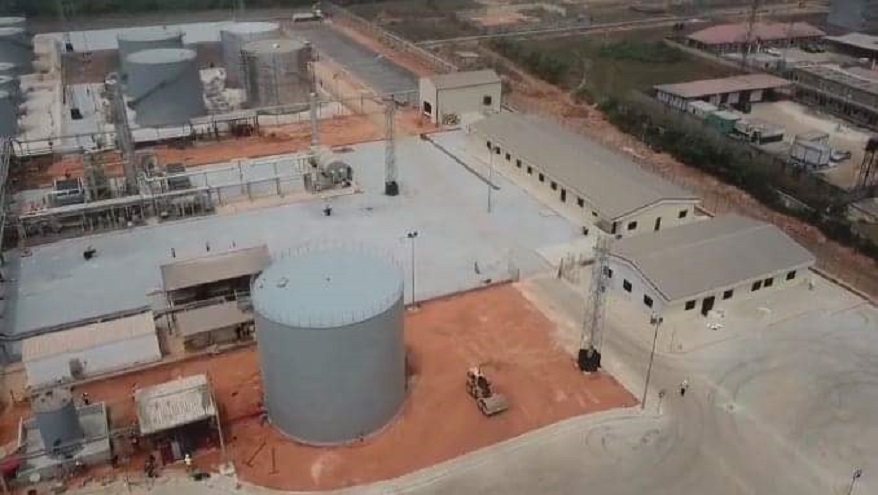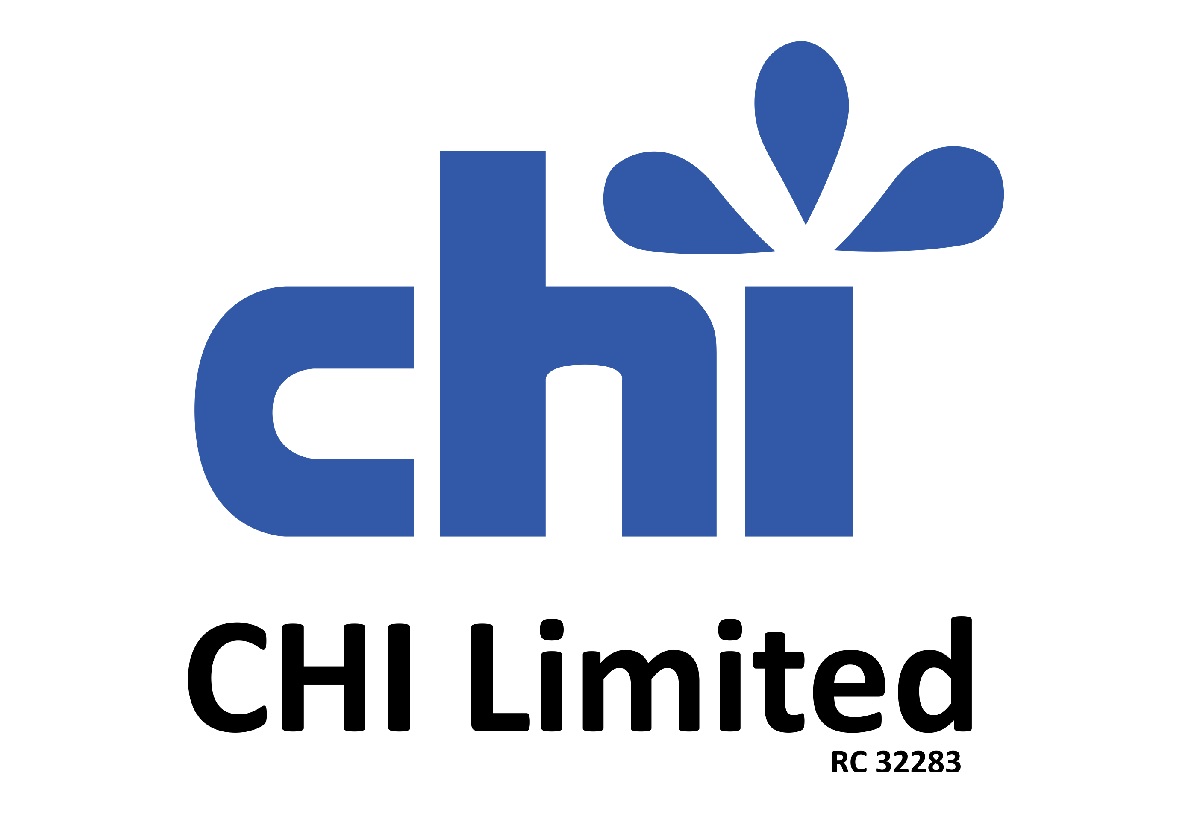Jobs/Appointments
FG Expects 500,000 Jobs from Waltersmith Refinery

By Adedapo Adesanya
Imo State-based 5,000 barrels per day Waltersmith modular refinery looks set to provide 500,000 oil downstream sector jobs, according to the federal government.
The Minister of State for Petroleum Resources, Mr Timpre Sylva, while speaking at the official launch of the refinery, said this will reduce the rate of unemployment in the country.
He also stated that the project is part of efforts to gradually reduce the importation of petroleum products into the country with the support of the Nigerian National Petroleum Corporation (NNPC) and the Department of Petroleum Resources (DPR).
Waltersmith’s refinery, perhaps the first to commercially take-off in the country, is part of Nigeria’s efforts to reduce costs associated with fuel importation; augment local refining capacity of petroleum derivatives; establish Nigeria as a regional refining hub; and spur direct and indirect job creation through the downstream industry.
With a crude oil storage capacity of 60,000 barrels, Waltersmith modular refinery at Ibigwe Field, Ohaji Egbema council area of Imo State is expected to produce approximately 271 million litres of refined petroleum products annually, including diesel (AGO), kerosene (DPK), heavy fuel oil (HFO) and naphtha.
This first 5,000 barrels per day module will later be followed by 25,000 barrels per day and 20,000 barrels per day modules, which will enable the production of petrol, aviation fuel (Jet A1) and liquefied petroleum gas (LPG).
Waltersmith Petroman Oil Limited had signed an engineering, procurement and construction (EPC) contract in June 2018 with Houston-based VFuels V-fuels and Lambert Electromec. Construction of the modular refinery began in October of the same year and delivered in less than 24 months. The official commissioning earlier planned for May this year was postponed as a result of the COVID-19 health protocols.
At the commissioning yesterday, President Muhammadu Buhari ordered the NNPC and DPR to provide crude supplies to Waltersmith and other modular refineries in the country to enable them to operate optimally.
Mr Buhari equally directed all other relevant agencies in the nation’s oil industry to ensure they do not starve the modular refineries of all their required resources, including condensate, to operate.
According to him, modular refineries represent four key policy roadmaps rolled out by his administration in 2019 to reduce importation of petroleum products. He expressed delight to commission the refinery, describing it as the largest modular refinery in Nigeria to date.
He said the refinery forms an important part of the economic reform which the country is currently undergoing, saying that the refining plant had already created thousands of direct and indirect jobs in the downstream subsector.
Also speaking at the event, the chairman of Waltersmith Group, Mr Abdulrazaq Isa, stated that, “The first module being commissioned today is 5,000 barrels per day, BPD, refining capacity. We are looking at 50,000 barrels per day refining capacity that will come with the planned additional two modules; 25,000 barrels per day and 20,000 barrels per day refining capacity respectively, which will then add PMS, aviation fuel and LPG to the product slates.”
On his part, the Governor of Imo State, Mr Hope Uzodinma, appealed to the federal government “not to kill this refinery by starving it of raw materials.” He said his administration would do everything within his powers to protect the investment.
It was gathered that the bulk of crude oil supply for this refinery would come from Waltersmith’s upstream business with backup from Oil Mining Lease (OML) 53 (Ohaji South) Seplat/NNPC Joint Venture (JV), third party crude currently processed at Waltersmith Ibigwe Flowstation and additionally from the 2020 Marginal Fields Bid Round for a nearby asset.
Jobs/Appointments
Court Sanctions CHI Limited for Wrongful Employment Termination

By Modupe Gbadeyanka
The termination of the employment of one Mr Bodunrin Akinsuroju by CHI Limited has been declared as unlawful by the National Industrial Court of Nigeria.
Delivering judgment on the matter, Justice Sanda Yelwa of the Lagos Judicial Division of the court held that the sacking of Mr Akinsuroju did not comply strictly with the provisions of the contract of employment and the Employee Handbook.
Consequently, the company was directed to pay him the sum of N2 million as general damages for wrongful termination and N200,000 as costs of action, while Mr Akinsuroju was ordered to return the company’s properties in his possession or pay their assessed market value.
Justice Yelwa found that the contract agreement between both parties clearly required either party to give 30 days’ notice or payment in lieu of notice after confirmation of appointment, and there was no evidence that the employee was given the required notice or paid salary in lieu of notice.
The judge held that failure to comply with this fundamental term amounted to a breach of the contract of employment, thereby rendering the termination wrongful.
Mr Akinsuroju had claimed that the allegation of misconduct against him was unfounded and not established, maintaining that the disciplinary committee proceedings were prejudicial and that the termination of his employment was without justifiable cause and without compliance with the agreed terms of his employment.
In defence, CHI Limited contended that it had the right to terminate the employment of Mr Akinsuroju and that the termination was lawful and in accordance with the contract of employment and the Code of Conduct.
In opposition, counsel to Mr Akinsuroju submitted that the alleged breaches were not proved and that the termination letter took immediate effect without the requisite 30 days’ notice or payment in lieu of notice as stipulated in the letter of appointment and the Employee Handbook, urging the court to hold that the termination was wrongful and to grant the reliefs sought.
Jobs/Appointments
Tinubu Appoints Tunji Disu as Acting Inspector General of Police

By Modupe Gbadeyanka
President Bola Tinubu on Tuesday appointed Mr Tunji Disu as the acting Inspector General of Police (IGP), following the resignation of Mr Kayode Egbetokun.
Mr Disu, an Assistant Inspector General of Police (AIG), was recently moved to the Force Criminal Investigation Department (FCID) Annex, Alagbon, Lagos.
A statement today by the Special Adviser to the President on Information and Strategy, Mr Bayo Onanuga, disclosed that the President would convene a meeting of the Nigeria Police Council shortly to formally consider the appointment of Mr Disu as substantive IGP, after which his name will be transmitted to the Senate for confirmation.
Mr Tinubu expressed confidence that Mr Disu’s experience, operational depth, and demonstrated leadership capacity would provide steady and focused direction for the Nigeria Police Force during this critical period.
He reiterated his administration’s unwavering commitment to enhancing national security, strengthening institutional capacity, and ensuring that the Nigeria Police Force remains professional, accountable, and fully equipped to discharge its constitutional responsibilities.
Mr Egbetokun was said to have resigned from the position due to pressing family considerations.
President Tinubu, who accepted the resignation letter, expressed his profound appreciation for Mr Egbetokun’s decades of distinguished service to the Nigeria Police Force and the nation. He acknowledged his dedication, professionalism, and steadfast commitment to strengthening internal security architecture during his tenure.
Appointed in June 2023, Mr Egbetokun was serving a four-year term scheduled to conclude in June 2027, in line with the amended provisions of the Police Act.
The statement disclosed that his replacement was in view of the current security challenges confronting the nation, and acting in accordance with extant laws and legal guidance.
Jobs/Appointments
Tunji Disu to Become New IGP as Egbetokun Quits

By Adedapo Adesanya
Mr Tunji Disu, an Assistant Inspector General of Police (AIG), has reportedly replaced Mr Kayode Egbetokun as the new Inspector General of Police (IGP).
Mr Egbetokun resigned from the position on Tuesday after he was said to have held a meeting with President Bola Tinubu on Monday night at the Presidential Villa in Abuja.
President Tinubu appointed Mr Egebtokun as the 22nd IGP on June 19, 2023, with his appointment confirmed by the Nigeria Police Council on October 31, 2023.
Appointed as IGP at the age of 58, Mr Egbetokun was due for retirement on September 4, 2024, upon reaching the mandatory age of 60, but his tenure was extended by the President, creating controversies, which trailed him until his exit from the force today.
Although the police authorities are yet to comment on the matter or issue an official statement about his resignation, the move came amid reports suggesting that Mr Egbetokun has left the position.
Mr Egbetokun’s tenure was marred by a series of controversies; he recently initiated multiple charges against activist Mr Omoyele Sowore and his publication, SaharaReporters, after Mr Sowore publicly described him as an “illegal IGP.”
The dispute escalated into protracted legal battles, with the Federal High Court issuing injunctions restricting further publications relating to the former police chief and members of his family. Critics interpreted these court actions as attempts to stifle dissent and weaken press freedom.
His replacement, Mr Disu, was posted to oversee the Force Criminal Investigation Department (FCID) Annex, Alagbon, Lagos, some days ago.
-

 Feature/OPED6 years ago
Feature/OPED6 years agoDavos was Different this year
-
Travel/Tourism10 years ago
Lagos Seals Western Lodge Hotel In Ikorodu
-

 Showbiz3 years ago
Showbiz3 years agoEstranged Lover Releases Videos of Empress Njamah Bathing
-

 Banking8 years ago
Banking8 years agoSort Codes of GTBank Branches in Nigeria
-

 Economy3 years ago
Economy3 years agoSubsidy Removal: CNG at N130 Per Litre Cheaper Than Petrol—IPMAN
-

 Banking3 years ago
Banking3 years agoSort Codes of UBA Branches in Nigeria
-

 Banking3 years ago
Banking3 years agoFirst Bank Announces Planned Downtime
-

 Sports3 years ago
Sports3 years agoHighest Paid Nigerian Footballer – How Much Do Nigerian Footballers Earn












